Shari Dunn Says Don’t Give Up on DEI

Shari Dunn.
Portlander Shari Dunn has worked as a news anchor, an attorney, and as the executive director of a women’s employment support nonprofit. She taught master’s-level business courses, founded a systemic equity consultancy, and even won $125,000 on Who Wants to Be a Millionaire. She is more than qualified to do many things—but she’d prefer we avoid exhaustive lists of qualifications and rethink the concept in its entirety.
In February, Dunn published Qualified: How Competency Checking and Race Collide at Work, a book deconstructing traditional understandings of merit and qualifications that, through something of a user’s manual, offers a new vision of what an equitable workplace could look like. Interviewing Black employees, from marketing executives and CEOs to MBAs and lawyers, and digging into sociological studies and business surveys evaluating office race dynamics, Dunn noticed some frustratingly persistent trends that were impacting unemployment rates and job satisfaction among Black Americans. “The idea that Black or other people of color or women are showing up to a job and getting a job being unqualified is ridiculous,” she says. “And the truth of the matter is that Black people in corporate spaces and work spaces tend to have more education and more experience. They’re often underemployed, and white people with fewer qualifications are moving forward.”
This perspective is becoming more and more radical in our current political climate, considering the Trump administration’s onslaught of anti-DEI policy and rhetoric. But even before Trump’s executive order blitz began, targeted campaigns against DEI programs had become common conservative talking points, and many companies had abandoned their own efforts or let the burgeoning antiracist muscles they had built during the 2020 reckoning atrophy. With superficially executed cultural education programming, tokenism masquerading as equitable hiring initiatives, and “merit-based” evaluations that are still rooted in exclusionary language, Dunn says, “There was no way that you were going to fix 400 years worth of systemic bias and anti-Black bias in two years.”

Brooke Jackson-Glidden: Much of your book focuses on the concept of competency checking, which you call “an expression and tool of systemic racism used in the workplace to ‘confirm’ or discount the capabilities and qualifications of Black people.” What does that look like in practice?
Shari Dunn: It’s the assumption of a lack of intelligence, assumption of lack of qualifications, and extreme vetting. Almost every Black person has endured that, even for an entry-level job—having to meet more qualifications, provide more information. And you’re like, “I don’t think other people are doing this.” In the book, I talk about the fact that [management consultancy] Korn Ferry did the research showing that even [Black] CEOs, profit and loss leaders, have to go through extreme vetting, and then they’re still not getting promoted.
Later in the book, you talk about the SATs—how standardized tests presumably aimed at merit-based evaluation often obscure their racial or cultural bias with the way questions are phrased or structured. Many arguments against DEI efforts hinge on the idea of some great before-time, when workplaces and universities were meritocracies.
There was no great meritocracy. It’s a destructive myth, destructive to everyone. It’s not just destructive to Black folks, because that myth also keeps low-income, poor, working-class white people in a perpetual limbo because they believe this myth, and what they’re not tracking is that we are not, and have never really been, a meritocracy. Now we have more fluidity in movement than maybe some other countries, but you are much more likely to be born rich and die rich, born poor and die poor here, than you [are to move] between classes. And that’s not something we like to talk about. But the myth persists as a way of building a bulwark to keep out people. This idea that we ever had a time where merit mattered most? It just hasn’t existed. Almost everything about how we think about qualifications came about to keep the undesirables out. It wasn’t about measuring ability. It was about exclusivity.
Many contemporary attempts at avoiding biases in hiring practices involve blind tests and “merit-based” evaluations, in an attempt to avoid racial bias or dubious “culture fit” hires. How can people in power more effectively build hiring processes that eliminate anti-Black bias while not leaning on surreptitiously biased testing or evaluations?
One thing we have to consider is perhaps blowing up our existing hiring archetypes, because they weren’t designed for the modern workplace. Referral-based hiring, as I talked about in the book, is essentially a closed, race-based hiring scenario. Thirty to 40 percent of jobs are hired through referral. And our networks are race-based: For white people, 90 percent of their friend network is white, and that has to do with housing patterns. It’s all related, but because of that—and not because they’re necessarily saying, “Oh, I’m going to exclude Black people”—you refer who you know. So you have, right in front of you, a very race-based hiring system with referral-based hiring, and it’s a closed hiring system, and it’s a slightly more informal one. And then you have this testing, which comes from a white normative lens. We need to pull apart some of the ways we traditionally think about hiring because they really go back to an old system that worked best for, quite frankly, married white men.

Dunn speaks to a crowd at Powell’s in February.
You write at length in the book about how there is no one perfect solution to any of these issues.
That has been the problem with diversity, equity, and inclusion initiatives in general. People are like, “Oh, well, we tried that.” Well, in business, if you tried something and then you never tried it again, you would go out of business in two minutes, right? I talk in the book about HR professionals and how they’re the first line of defense, and how they need to be way more engaged in making sure that their companies and organizations are not competency checking, are understanding intersectionality, are advocating for change. What does it mean to change it?
Are there diversity, equity, inclusion practitioners who aren’t any good? Yep. Was there diversity, equity, inclusion work that wasn’t good? Yep. But there are consultants of all types who are terrible. I’m not here to say every single person who ever practiced DEI is perfect and right, but neither is every person who’s a communication consultant.
You talk about this idea of white supremacy almost being like a body. When someone in the workplace challenges anti-Black bias, this immune response kicks in, this desire to push people out. I know we talk about systems a lot, but in terms of that internal, emotional change, it seems like that has to happen hand in hand with systemic change, does it not?
The problem with a straight emotional pitch is it becomes quite challenging to a person, and people tend to protect themselves. It doesn’t matter who they are or what it is. And if they feel you’re trying to take away some fundamental thing, they just don’t listen. But if you are like, “Hey, this is the way you’re going to have to do this job, to be successful in this job,” that’s a whole different ball game. I do think training is important. We need to talk about what it means to communicate effectively across our differences. To me, successful training is rooted in the industry, the company, and the issues that they have, and that your diversity, equity, inclusion training is responsive to that. And in doing that, you are actually going to be training them on all the hearts-and-minds things, just not in a way that they necessarily might identify as that, right?
It’s almost like you’re working the muscles, and then eventually you get into the place where your mind follows suit.
And you pair that with good, relevant training. Every business in the United States should move into cross-cultural communication training. Being a Blue Communicator or knowing your Myers-Briggs type is not helping us, but understanding how we tone-police Black women and why we speak the way we do, and for us to understand the historical reasons why some folks are indirect, and understanding different language-based communication archetypes, those things could help us way more than some of the other stuff we do.
How have you encountered competency checking in your own career in Portland specifically, the whitest major American city? How did it compare to the kinds of competency checking you encountered elsewhere?
Every town has its own racism, and when you move there as a Black person, you have to figure out the nuances. I lived in Texas for several years and I couldn’t quite tolerate that, but it had its own styles and ways that people there were used to. It’s like being nose blind to your house: You don’t know what your house smells like because you live in it. I grew up in Milwaukee, Wisconsin, which is a hyper-segregated place, but I was nose blind to it. I knew its contours. And then when I lived in New York, I learned its contours. Every place I lived, I’ve had to figure out the contours. Being from Milwaukee, Portland was not as big a jump as it might be from somebody who was born and raised in metro Atlanta or Chicago. Even though I’ve lived all over the United States, Portland didn’t throw me like it throws some people. I knew Portland had a Black community when I moved here because I was from Wisconsin; I understood that erasure. I’ve been here a decade, and the Black pioneer community came and reached out to me. But the white community here also has been so supportive and so caring. I cannot emphasize enough that I have, for the most part, had nothing but love and support and encouragement from this community. At the book launch, 200-plus people came out to Powell’s. The number of people here who step up and try to help in the ways that they can help has been tremendous. It’s easy to make fun of Portland, but when it comes to race in the United States, there isn’t a single place that’s where it’s supposed to be, because we have yet to really reckon with the impact of race on our day-to-day lives and in our workplaces. That’s not just Portland, that’s every place I have worked. Portland tries, and there’s something in the trying. Could everybody do better? Of course. Are there people in Portland who think they don’t have biases, and they do? Yes. But they’re in Milwaukee and Texas and Chicago, too.
The critique I often hear about white people in Portland, from the perspective of people of color, has to do with performative allyship.
I’ve never been a fan of that word. We’re all performing every day, so I don’t know who’s not performative. We are asking people to take a test for something they’ve never learned, and that feels wrong. A lot of this information is purposely hidden from us. The performative label can freeze people so they don’t do anything, and perfection can’t be the enemy of the good. We have to figure out what it means to move forward. Rather than saying performative, we might say, “Hey, this is not the correct solution to the problem, and I appreciate that you are moving forward, but let’s alter this solution.” Let’s keep iterating and evolving until we get what works for us, for our community, for our work.
I do think Portland is a critical reason for the hysteria over diversity, equity, and inclusion. During the George Floyd protest, these folks went to the Burnside Bridge and thousands of people laid down. Do you remember that iconic photo? That photo went bananas on the right-wing blogosphere; they said that the reason these white people in Portland were doing this is because they had been taught critical race theory in school, because of DEI. And they went on a mission after that, to reclaim their workspaces and their educational institutions, because “These white kids have been taught to hate themselves.” So I actually think Portland is a key player here, because white supremacy wants to police white people, right? One person can look at that photo and see empathy. Another person looks at that and says, “Okay, they laid down. But what did they do later? They didn’t do enough.” And then a third person looks and says, “Oh, they’re brainwashed with critical race theory, that’s why they laid down.” So it was a big flash point. Portland, as usual, was at the center of things.
At a time when dismantling white supremacy has become increasingly criminalized—as teachers and librarians lose their jobs for covering America’s racist history, as the Supreme Court undoes affirmative action policies, as the president refers to DEI programs as “illegal”—what do you see as the most crucial and strategic ways we can fight for a more equitable and diverse workplace?
The number one thing I want people to know is that affirmative action and EEO [equal employment opportunity] law protections have not been outlawed in the workplace. This is a very, very important distinction. Affirmative action in college admissions was the Supreme Court case. It will take another Supreme Court case to dismantle affirmative action in the workplace. Play until the whistle blows. We’re gonna keep utilizing these tools until the whistle blows. Until the Supreme Court invalidates affirmative action in the workplace, employee resource groups, think about your diverse employees and support them. Look to see if your employees represent the population, the community in which you live. Most things that people do around diversity and inclusion in the workplace are still fundamentally legal, and nothing has changed in the workplace, other than these wild executive orders that do not have the force of law in a private business or enterprise that is separate from the Supreme Court decision.
What I found alarming is that attorneys and law firms are actually telling companies otherwise, which is insane. I did graduate law school, and I know better than that. These cases will likely go to the Supreme Court, but they’re not there yet. And you know, there’s a list of companies that have rejected anti-DEI shareholder language dislodging Black and other people of color from the workplace. This administration is going to try to use the force of the government to sue private industry, to force them to do what? To stop considering diverse consumers? What if they’re an international company? Let’s play this out: You have an international company, you have to consider the holidays of the people who work at your factories or offices around the world. So you’re supposed to stop doing all that? How are you going to run a business like that? People really need to keep their eye on the ball here, not comply before the change has come, and not confuse what happened with affirmative action in admissions, with affirmative action in the workplace.
Share this content:
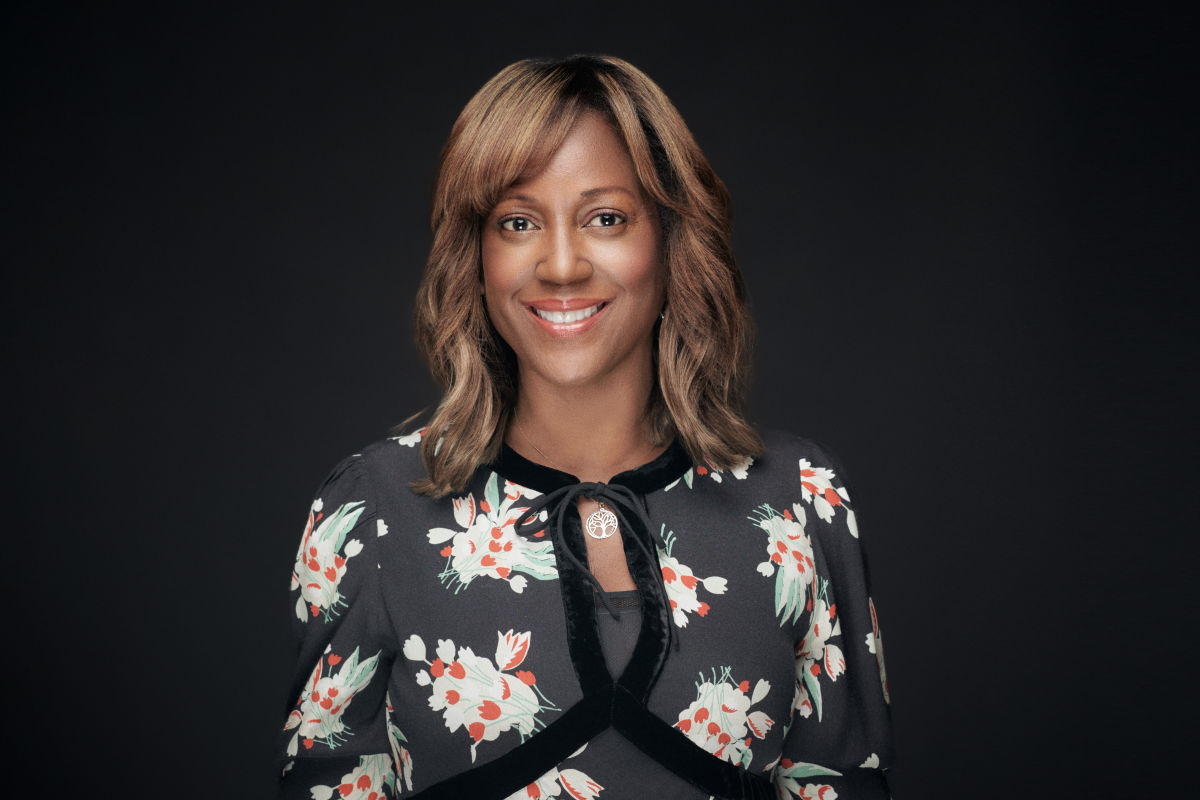


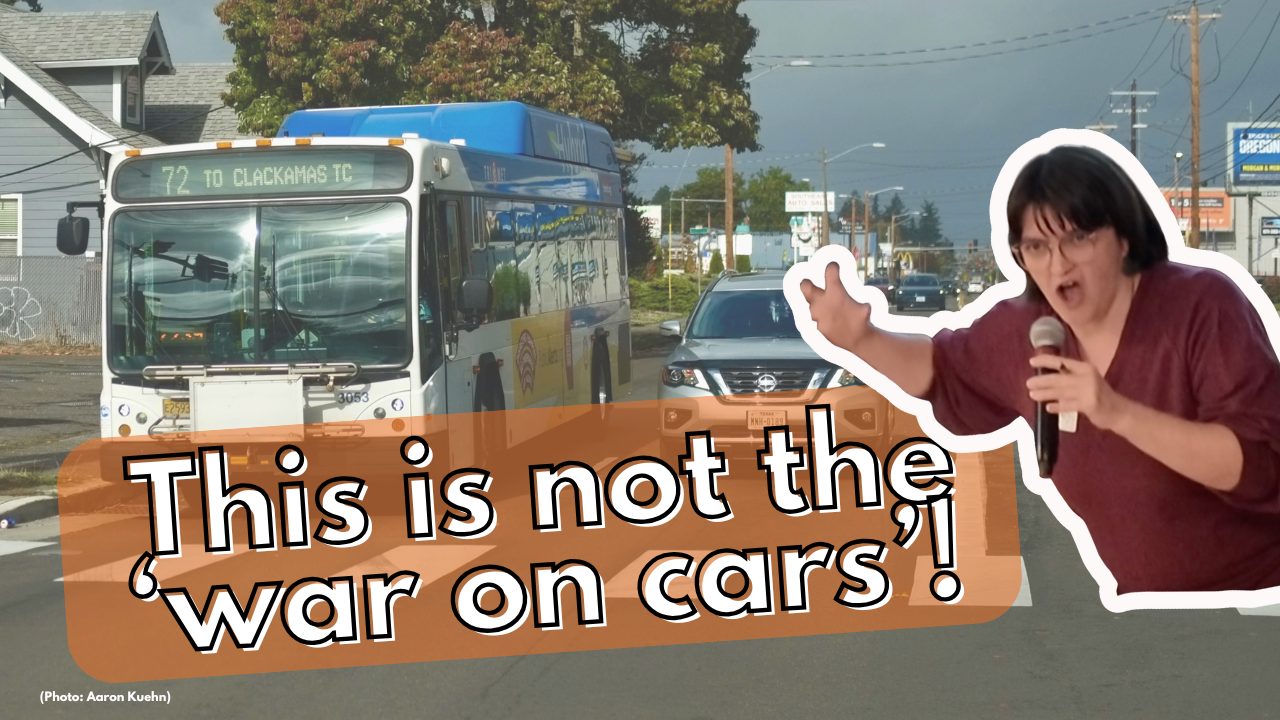
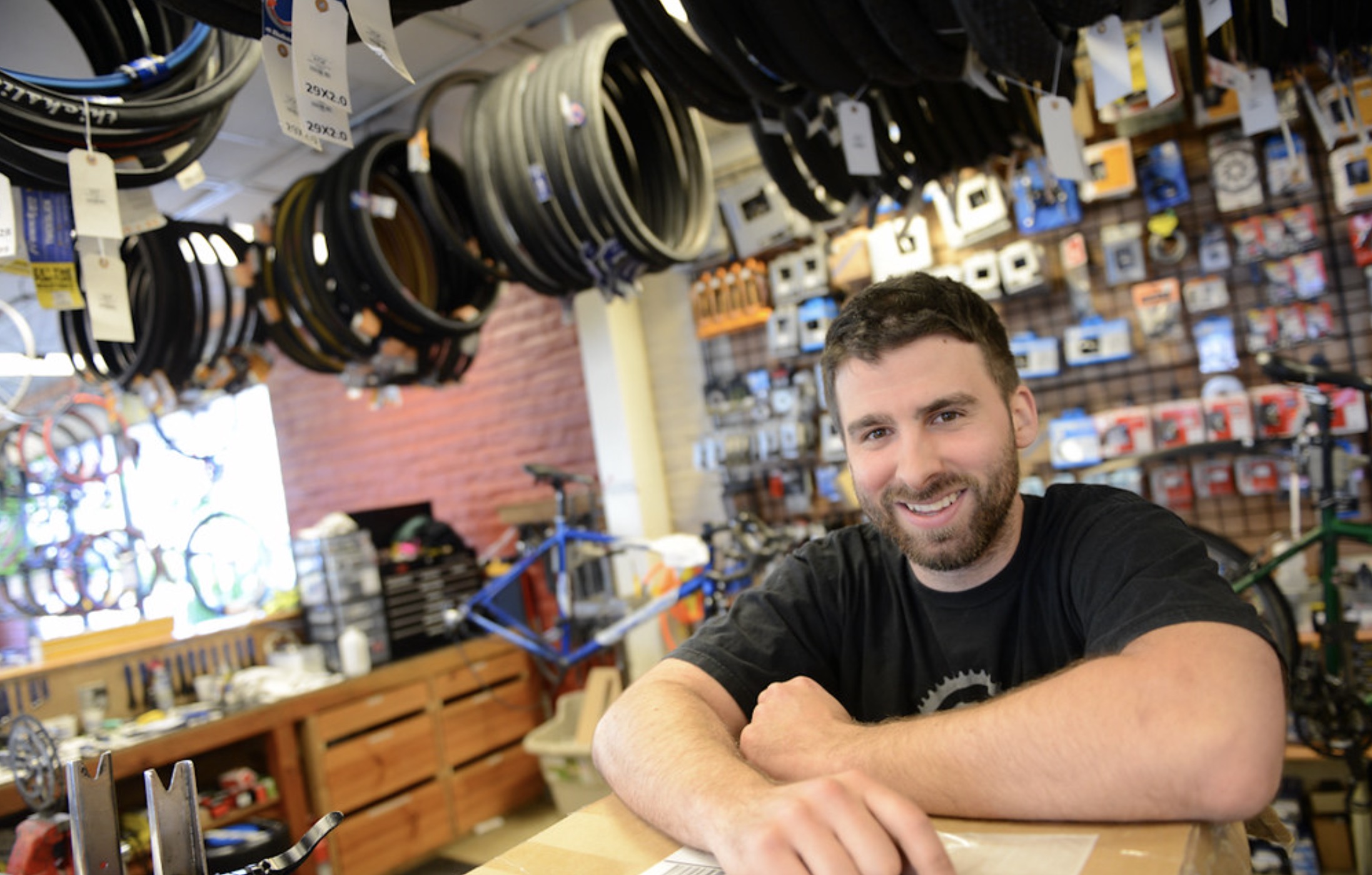

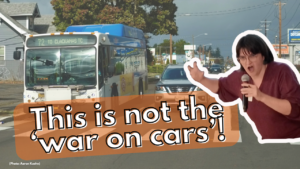






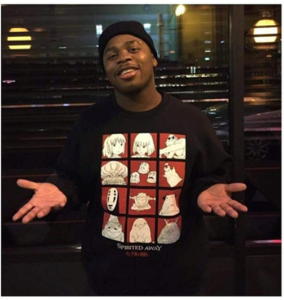

Post Comment